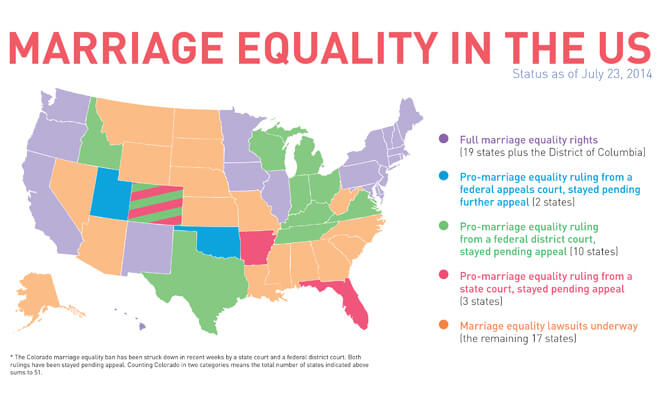Four states and the nation’s capital have taken action to ban the so-called LGBTQ “panic defense,” which is a legal strategy used by defendants to cite a victim’s sexual orientation or gender identity as an excuse to commit a violent crime.
In recent months, Maryland, Oregon, Washington D.C., Vermont, and Virginia all moved to ban the use of the panic defense. Defendants have used the panic defense in court by claiming that a victim’s gender identity or sexual orientation caused them to act out in a violent way.
While lawmakers in Maryland approved the legislation in March, the law will go into effect in October, according to the Washington Blade.
“Establishing that the discovery or perception of, or belief about, another person’s race, color, national origin, sex, gender identity, or sexual orientation, whether or not accurate, does not constitute legally adequate provocation to mitigate a killing from the crime of murder to manslaughter nor is it a defense to the crime of assault in any degree,” notes the bill in Maryland, where Republican Governor Larry Hogan is letting the bill go into law without his signature.
In Vermont, another state led by a Republican, Governor Phil Scott of Vermont signed the bill into law in early May and posted a YouTube video stating, “Your identity should never be an excuse for someone to cause you harm.”
Also in May, Oregon’s Democratic Governor Kate Brown signed her own state’s version of the law striking down the discriminatory defense. The bill’s sponsor, Oregon State Representative Karin Power, said the legislation would send a “strong and proactive message that the perpetrator…will not be able to excuse the crime simply based on who their victim is.”
Last year, city councilmembers in Washington D.C. also voted to repeal the strategy, and on May 15 of this year, the law went into effect.
Governor Ralph Northam of Virginia approved a similar measure on Trans Day of Visibility. That bill was introduced and sponsored by Danica Roem, the first out transgender lawmaker in the state.
Panic defenses have been used numerous times over the years, including in the case of Matthew Shepard, a gay college student at the University of Wyoming who was beaten to death in 1998. In 2002, the trans “panic defense” was used after the death of Gwen Araujo, a 17-year-old Latina trans woman who was killed by four men after they discovered she was transgender. Relatedly, the gay “panic defense” was allegedly employed following the death of Daniel Spencer, a 32-year-old man in Texas, who was fatally stabbed by his neighbor James Robert Miller in 2015.
Miller alleged that Spencer attacked him with a glass after rejecting a kiss from the victim, although there is no physical evidence that an attack occurred, NBC reports. According to the National LGBT Bar Association, Miller’s sentence was reduced from murder to criminally negligent manslaughter.
Lawmakers in the tri-state area are also taking a stand for this legislation. Last year, Governor Phil Murphy of New Jersey signed legislation barring defendants from using the panic defense, while New York and Connecticut banned it in 2019.
To sign up for the Gay City News email newsletter, visit gaycitynews.com/newsletter.



































